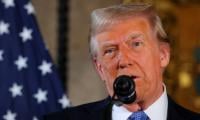KARACHI: The central bank on Sunday said Pakistan’s economy faces downside risks, stemming from the virus-induced lockdown due mainly to the country’s multidimensional poverty, high consumption rate and informality in job market.
The State Bank of Pakistan (SBP), citing the United Nations, said roughly four out of 10 people in Pakistan face multidimensional poverty. “This raises challenges of foods and social security in an extended lockdown scenario,” the SBP said in the second video in the series explaining how vulnerable Pakistan’s economy is in the face of Covid-19.
The SBP said very high informality in job market increases the risk of layoffs and decreases earnings. The consumption rate in the country is the highest among the regional economies, it said. “This means that our GDP growth is vulnerable in a limited mobility scenario. Lastly, informality in our job market is very high.”
While the government had decided to ease more than two-month lockdown after the novel coronavirus outbreak in March, economic activities are yet to normalise with restrictions intact to contain Covid-19.
The central bank further said the government expenditure on health and education is relatively low compared to regional countries. “Having a strong healthcare system and adequate level of awareness among the public is important in the current scenario.”
The SBP said elevated debt level constraints the government’s ability to spend on relevant sectors. Limited monthly and quarterly information regarding key sectors, such as GDP, livestock and small and medium enterprises impact an ability to get an accurate picture of certain parts of the economy in real time, it added.
Pakistan’s economy was striding towards growth pace under an International Monetary Fund-backed reforms programme before the coronavirus outbreak. Following the pandemic, the SBP projected growth to contract 1.5 per cent this fiscal year.
The SBP said the government had started efforts to stabilise the economy well before the pandemic strung. As a result, the external sector’s performance was improving. Exports were picking up and imports were declining. “This led the country to earn more foreign exchange,” it said.
Meanwhile, on the government front, the SBP said tax collection started growing during FY2020, which led the country to increase the focus on development spending and primary balance being in surplus for the first time since 2016.
“All these meant that business confidence was rising and the country was experiencing healthy inflows of foreign investment. Indeed, after this period of stabilisation, the economy was beginning to show greeshoots of recovery,” it said. “That was the good news. Pakistan’s fundamentals were much improved before Covid-19 struck the global economy and Pakistan recovers once the pandemic subsides.”
Police say that ten people were killed in Abuja and “many others” in Okija
Ministry says three drones were destroyed by air defence systems and three others by electronic warfare systems
Sanjoy Roy, 33, lone accused in case, pleads not guilty before judge in closed court in Kolkata
JUI-F chief says talks with government have been positive wherein it admitted that party’s demands were strong
Iran has poor road safety record, with 20,000 deaths reported between March 2023 and March 2024 in road accidents
"Entire nation is united to eliminate every enemy of peace," says Maryam Nawaz







